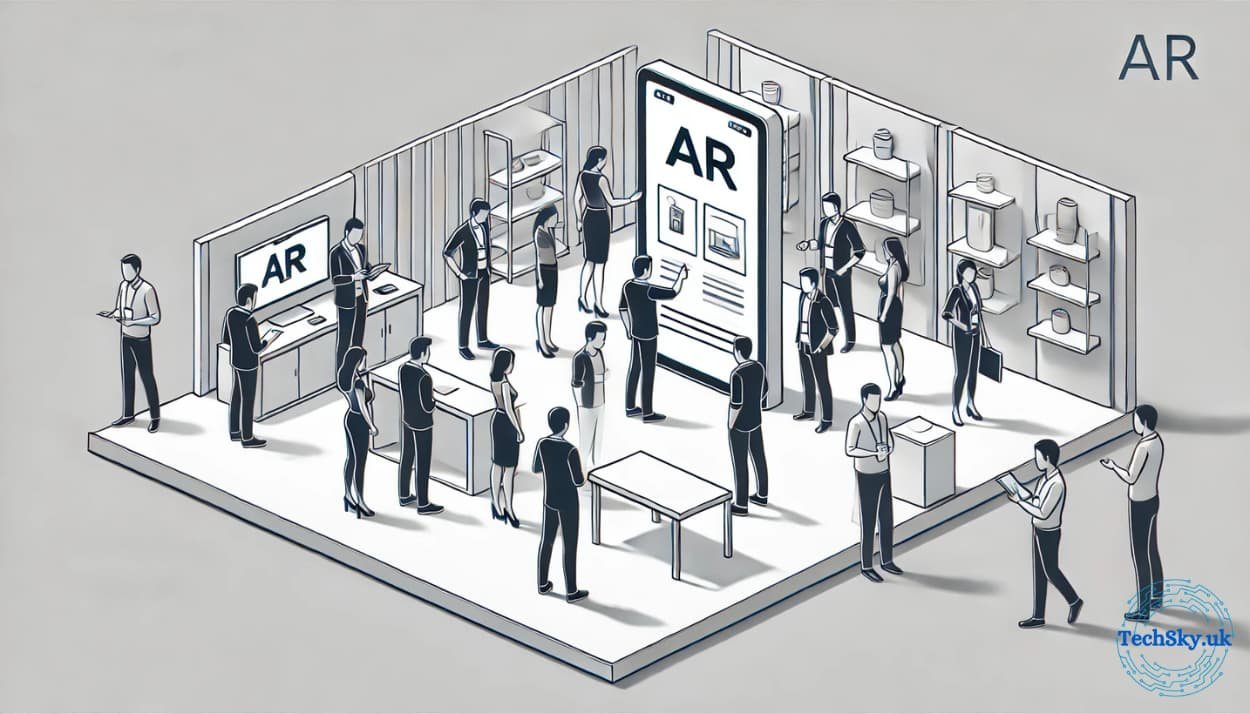Events are becoming increasingly dynamic and interactive with the integration of augmented reality (AR). By blending the physical and digital worlds, AR is transforming how brands connect with audiences during live events. In this article, we’ll explore how AR is shaping event marketing and the strategies businesses can use to create unforgettable experiences.
Why AR is a Game-Changer for Event Marketing
AR adds a new dimension to event marketing by offering immersive experiences. Here are some key benefits:
- Engagement: AR captivates attendees by turning passive observation into active participation.
- Memorability: Interactive AR experiences leave a lasting impression, making events more memorable.
- Innovation: AR showcases a brand’s commitment to cutting-edge technology, enhancing its reputation.
These benefits make AR an invaluable tool for creating impactful events.
How AR is Used in Event Marketing
AR can enhance event marketing in numerous ways. Here are some practical applications:
- Interactive Booths: AR can transform trade show booths into engaging experiences with 3D product demos and games.
- Virtual Attendees: AR enables remote participants to experience events as if they were there in person.
- Enhanced Presentations: Speakers can use AR to display complex data or visuals in a more compelling way.
These applications demonstrate AR’s potential to elevate event experiences.
Overcoming Challenges in AR Event Marketing
Integrating AR into event marketing comes with challenges, but these can be addressed effectively:
- High Costs: Start with scalable AR solutions that fit your budget.
- Technical Issues: Work with experienced developers to ensure seamless execution during events.
- Audience Adaptation: Educate attendees on how to use AR features through tutorials or demos.
By addressing these challenges, brands can fully leverage AR in event marketing.
The Future of AR in Event Marketing
AR in event marketing is constantly evolving. Here are some trends to watch:
- Integration with wearable devices to offer hands-free AR experiences.
- Development of AI-driven AR for personalized attendee interactions.
- Expansion of hybrid events with AR enabling seamless virtual participation.
These trends indicate a bright future for AR in transforming the event landscape.
Exclusive Insights: AR Success Stories in Event Marketing
Several brands have successfully used AR in their event marketing strategies. Here are a few examples:
- Coca-Cola: Leveraged AR photo booths to create shareable branded content during events.
- Mercedes-Benz: Used AR to offer immersive car showcases at auto shows.
- Comic-Con: Integrated AR scavenger hunts to engage attendees and drive participation.
These examples highlight the versatility and impact of AR in event marketing.
Did You Know?
Here are some interesting facts about AR in event marketing:
- Over 70% of event attendees believe AR makes events more engaging and enjoyable.
- AR-enabled events can see a 30% increase in social media shares compared to traditional events.
These figures showcase AR’s ability to enhance event engagement and visibility.
Key Takeaways
AR is redefining event marketing by creating immersive, engaging, and memorable experiences. By addressing challenges and embracing emerging trends, brands can harness AR to revolutionize their events and leave a lasting impact on their audiences.
Frequently Asked Questions
Here are answers to common questions about AR in event marketing:
- Q: Is AR suitable for small-scale events?
A: Yes, scalable AR solutions can be tailored to fit events of any size. - Q: How can AR improve virtual events?
A: AR enhances virtual events by creating interactive and immersive experiences for remote attendees.
